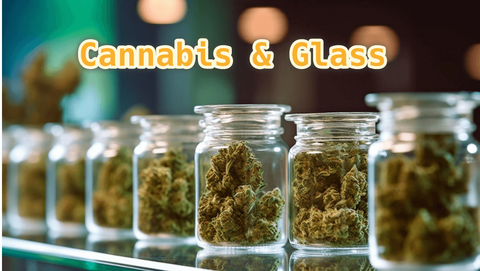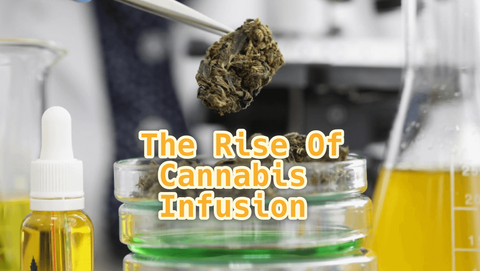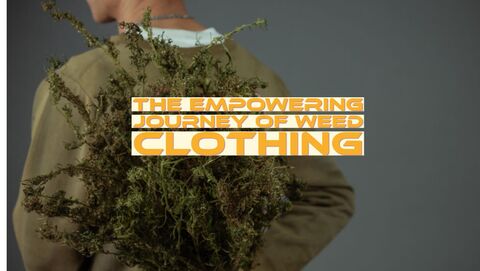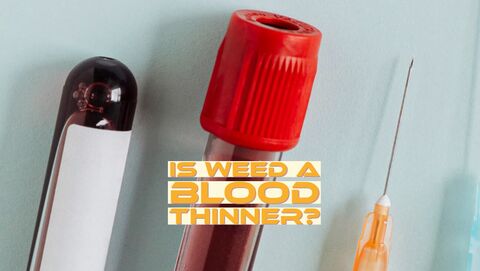Latest Blog Posts
Top rated

Is Weed Legal In Georgia?
Cannabinoids were a common component of people's home medicine cabinets during the 19th century. The following decades were marked by the repression that was fueled by propaganda and lobbyists. On the other hand, cannabis' medicinal potential is about to be rediscovered by the globe. Cannabis has been shown to alleviate the symptoms of a wide variety of illnesses, including pain, loss of appetite, and inflammation, among others.
A typical example of a professional athlete, Kyle Turley is surprising yet interesting. He is tall, blond, extremely fit, and has icy blue eyes to go along with his piercing gaze. However, appearances can be deceiving because, much like a large number of other professional sportsmen, he suffered from several health problems, some of which include headaches, depression, concussions, and sleep disorders. In addition, he has had his share of head injuries. He took a variety of painkillers and mental drugs to get a handle on these issues for many years. To no avail.
When he stopped taking all of those medications and started smoking weed, things finally started to turn around for the better. Turley tells Men's Journal, "It was the thing that kept me alive." The experiences that he has been having are being repeated by an increasing number of people. They look to natural remedies rather than artificial ones.
Be Aware Of Marijuana
Marijuana is the common name for the dried flowers, leaves, stems, and seeds of the cannabis plant. Other names for this substance include cannabis, weed, pot, and dope. More than a hundred different chemicals can be found in the cannabis plant (or cannabinoids).
These substances include tetrahydrocannabinol (THC), which causes a change in a person's state of mind, and cannabidiol (CBD), which does not create a change in a person's state of mind and therefore does not result in a "high."
Varying Degrees Of Distribution And Use Of Control
There are already several countries around the world that recognize medical marijuana, although with varying degrees of control and oversight over its distribution and use. In certain countries, such as the United States, its legal position varies from state to state, while in others, like Germany, it is only recognized as a therapeutic option for patients who are terminally ill or suffer from a chronic illness.
It should be clarified that it is still difficult to speak of conclusive evidence, as reported by researchers who made a comprehensive report on more than 10,000 studies last year. This report was published by the National Academies of Sciences, Engineering, and Medicine, which is a group of American organizations for the advancement of these three fields. The growing number of studies and the experiences of users that support its medicinal uses is increasing. Even so, it should be noted that it is still difficult to say that there is conclusive evidence.

It is important to note that the report also states that one of the primary reasons why it is difficult to obtain conclusive evidence is because of the restrictions imposed by federal regulations that, for example, in the United States, continue to consider marijuana to be a dangerous drug in some states. This should be taken into consideration because it is one of the primary reasons why it is so difficult to obtain such evidence. There is a growing number of possible or confirmed benefits of cannabis, which makes at the very least the study that is now pending increasingly vital.
How Is Marijuana Consumed?
People who use marijuana can roll the dry leaves into a cigarette, which is referred to as a "joint," or they can smoke it through a pipe or bong. Some people consume marijuana in the form of edibles, which it is combined with food; others make an infusion of marijuana as though it were tea.
Another approach is to cut the end off of a cigarette, remove some of the tobacco, and then replace some of it with marijuana. This creates what is known as a blunt. Some people choose to inhale vapor rather than smoke by employing a technique known as "vaping," in which they utilize electronic vaporizers, also known as "vapes." Vaping the THC-laden resins that are produced by the marijuana plant is yet another approach that is gaining in popularity. This activity is known as dabbing, and it can frequently put one in harm's way.
How Exactly Does Marijuana Cause Its Users To Feel Euphoric Or "High"?
When someone smokes marijuana, they almost instantly feel its effects of it on their body. THC, a psychoactive component of cannabis, passes throughout the body and enters every organ, including the brain, where it binds to receptors on nerve cells. This affects regions of the brain that are responsible for controlling pleasure, memory, thinking, concentration, movement, coordination, appetite, pain, sensory perception, and the perception of time.

THC, or tetrahydrocannabinol, has a molecular structure that is very similar to that of other naturally occurring substances in the body known as endocannabinoids. These endocannabinoids are important for the development and function of a healthy brain. Weed can have a variety of impacts not only on the brain but also on a person's overall health as a result of the widespread influence that the endocannabinoid system has on a variety of essential functions. Some of these effects are only present for as long as marijuana is present in the body, while others can build up over time and lead to chronic issues, including addiction.
Although THC can be found in the body in detectable concentrations for days or even weeks after intake, the effects of smoking marijuana typically only persist for one to three hours at most. When taken with food, the effects take longer to manifest and may be maintained for several hours.
Which Aspects Of A Person's Life Influence How Weed Will Affect Them?
The effects that weed has on a person are dependent on several factors, just like the effects that other drugs have. These factors include the person's prior experience with marijuana or other drugs, biological factors (such as genes), how the drug is used, and the potency (concentration) of the drug.
How Significant Is The Degree To Which Marijuana Can Be Smoked?
Growers have been adapting their practices to meet the requirements of the market over the past few decades, which has resulted in a steady rise in the potency of marijuana (measured in terms of the quantity of THC it contains).
If someone has never tried the substance before, this could imply that they are subjected to larger amounts of THC, which in turn increases the likelihood that they will have an unfavorable or unforeseen reaction.
Regular consumption of large doses of marijuana carries with it the potential for an increased risk of addiction, particularly for users who already have significant experience with marijuana. On the other hand, the extensive spectrum of repercussions brought on by the increased potency of marijuana is not completely recognized. It is not known what percentage of persons who use marijuana alter their dosage, that is, consume less of the drug, to account for the increased potency of the substance.
Is It Possible That Taking Marijuana Will Lead To Using Other Drugs?
The vast majority of people who try marijuana do not progress to using other, more dangerous drugs like cocaine or heroin. Research has shown that people are most likely to use marijuana before experimenting with other substances. It is also known from research conducted on animals that rats given repeated doses of THC showed increased behavioral responses and altered brain activation not only when they are exposed to more THC but also when they are exposed to other drugs like morphine.
This is the case regardless of the amount of THC exposure the rats received. Researchers are currently investigating whether or not being exposed to marijuana during adolescence may produce changes in the brain that enhance the likelihood that a person would become addicted to marijuana as well as other drugs such as alcohol, opiates, or cocaine.
It is essential to point out, however, that research has not fully explained any of these observations. These observations are complicated and most likely include a mix of biological, social, and psychological factors.
What Are The Positive Aspects Of Using Weed?
In recent years, research has proven a variety of medicinal qualities of some of the chemicals present in marijuana. It is common knowledge that cannabidiol, which is present in marijuana, has been adopted as a pharmaceutical alternative in some countries. Although it is not currently common practice, research has demonstrated that certain components of marijuana have a variety of clinical purposes.
These include the following:
- Treatment for pain
- Relief of nausea and vomiting caused by chemotherapy
- Appetite-stimulating agent for individuals with AIDS or cancer
- Treatment of seizures in people with epilepsy
- Treatment of muscle stiffness and neuropathic pain in people with multiple sclerosis
- Analgesic for people who are terminally ill and have cancer
- Treatment of obesity
- The treatment of both depression and anxiety
- Reduces the pressure inside the eye, which can be helpful for those who suffer from glaucoma
- Effectiveness against tumors and inflammation in the body
The Advantage That Stands Out In Particular
One advantage stands out in particular: you can partake in weed use for a significant number of years without endangering your internal organs. Even long-term use has no negative impact on the lungs. The results of a study that was carried out by the University of California on a sample size of 5,000 persons over the age of 20 have demonstrated that this is, in fact, the case.
But of course, not everything that shines is gold, and this saying certainly applies to cannabis as well. Cannabis use is unquestionably linked with the possibility of adverse outcomes. On the other hand, there is practically no other pharmaceutical that is capable of treating such a wide variety of illnesses and conditions. This time, you are going to concentrate on some of the many wonderful advantages that weed provides.
Anti-Pain Effects
There is a multitude of patient testimonials and studies that support the fact that cannabis has painkiller qualities. A report from the National Academies of Sciences provides conclusive evidence that cannabinoids are useful in the treatment of chronic pain. It is derived from one of the most in-depth investigations that have ever been carried out on cannabis.

The majority of patients who use medical marijuana do so to reduce their level of discomfort. Positive experiences have been reported in particular by people who are afflicted with cancer, migraines, or multiple sclerosis (MS).
Weed Is Effective In Reducing Nausea And Enhancing Appetite
The diagnosis of HIV is no longer automatically fatal. However, even the antiretroviral treatments with the highest rate of effectiveness come with several undesirable side effects. These symptoms include a decrease in appetite and nausea.
Weed is shown to be highly successful in treating several HIV symptoms and side effects, as has been suggested by anecdotal evidence for a long time. This finding has been confirmed by several studies and research projects.
Opiates Can Be Replaced With Weed
The United States is currently experiencing the worst drug epidemic in its country's entire history. There is no cure in sight for the opioid epidemic, which claims the lives of approximately 150 Americans every single day and shows no signs of slowing down.
The use of cannabis for medical purposes provides a source of encouragement. It may lessen the requirement for medications that include opioids. Cannabis has also been shown to reduce the severity of side effects experienced by many heroin addicts.
Weed Protects Against Dementia And Delays The Progression Of Alzheimer's Disease
Tetrahydrocannabinol, or THC, has been shown to alleviate some of the symptoms of Alzheimer's disease, even when only present in trace amounts. It has been hypothesized for a very long time that the most prevalent cannabinoids had neuroprotective qualities. Cannabidiol, often known as CBD, is important to the treatment of Alzheimer's disease since inflammation of the immune system is a known risk factor for the disease.
The following is a comment made by expert Gary Wenk that has generated a significant amount of controversy. According to him, young adults can better defend themselves against dementia by smoking "a puff of marijuana every day." More and more people are discovering the benefits of microdosing.
Cannabis Is Effective In Reducing Inflammation
For many years, weed has been used as a treatment for inflammation by practitioners of alternative medicine. The unpleasant muscular spasms or cramps that can be induced by multiple sclerosis have responded well to therapy with a mouth spray that is produced from weed.

The anti-inflammatory benefits of weed are also beneficial to those who suffer from asthma. Within the scope of this discussion, the anti-inflammatory and antibacterial qualities of the cannabis plant have been exhaustively researched and contrasted.
Marijuana Is Useful In Treating Sleep Difficulties And Night Terrors
Almost all experience bouts of insomnia every once in a while, and even when you count sheep, you still can't fall asleep. Insomnia can be a normal part of life, but when it becomes chronic, it can soon become problematic for the individual who is affected. Many people resort to the usage of sleeping pills, which, despite being helpful, are fraught with controversy, mostly since they can lead to addiction.
Dr. Michael Moskowitz, a psychiatrist and science writer, generally recommends plant-based alternatives to his patients rather than traditional medicines. "Rather than taking hypnotic sleeping medication, I would recommend that you take a tincture that is high in THC instead. Cannabis is, in my experience, the most effective treatment for helping patients sleep."
Patients diagnosed with PTSD (Post-Traumatic Stress Disorder) have also stated that the treatment with cannabis was effective in reducing the frequency and severity of their nightmares.
Cannabis Reduces Tic Frequency In Tourette's Patients
Tourette syndrome is a neuropsychiatric condition that can present itself in a variety of ways, including both physical and mental tics. It is characterized by comments that are considered to be socially inappropriate, which can make the affected individual feel very uncomfortable.
Weed is useful in treating Tourette's syndrome, according to many studies. Not only can it assist in reducing the frequency of tics, but it also helps reduce anxiety and improve sleep, which is a noteworthy feature.
Patients Suffering From Parkinson's Disease Can Benefit From Weed In Several Ways
The death of nerve cells in a specific part of the brain is the root cause of Parkinson's disease. It is a neurological disease that affects the second most people after Alzheimer's disease. At first, physical abilities are affected by Parkinson's disease; later on, however, mental and psychological symptoms such as dementia and depression appear as a result of the disease.
Weed has been a lifesaver for a good number of Parkinson's disease patients. They report that they are happier and more fit and that their spasms and stiffness have decreased.
Weed Reduces Seizures
Anyone who is even remotely interested in the therapeutic potential of cannabis will, sooner or later, unavoidably come across the story of Charlotte Figi. It is the story of a little girl who was able to control the epileptic seizures that she was experiencing by using a cannabis strain that had a high concentration of CBD.

Cannabis has been used medically for a very long time because of its anticonvulsant qualities. The earliest mentions seen in the scientific literature are from 1947. Research is still being done to determine the specific mechanism that is responsible for it.
Cannabis Decreases Intraocular Pressure
Glaucoma is the collective name for a series of eye illnesses that, in their most severe forms, can result in total blindness. In many instances, the risk factor that makes the difference is elevated intraocular pressure.
Eye drops made from weed and sold are one potential solution. There is a particularly dangerous form of glaucoma known as angle-closure glaucoma, which is characterized by excruciating pain within the eyeball. This form of glaucoma can lead to blindness. Cannabis' widespread efficacy as an analgesic, muscle relaxant, and mood enhancer makes it possible for it to alleviate the condition of a large number of individuals who are suffering from it.
The Decriminalization And Regulation Of Marijuana Use In The United States
Although marijuana is still prohibited at the federal level, its use for medical purposes has been decriminalized in almost half of the states, as well as the District of Columbia, Guam, Puerto Rico, and the Virgin Islands of the United States. Additionally, a growing number of states are decriminalizing its usage for recreational purposes by adults.
Even if marijuana is used by adults for purposes both medical and otherwise, this does not indicate that it is risk-free to use. Both the negative and positive impacts of marijuana use on one's health are now being researched by medical professionals.
What Are Some Of The Ways That Marijuana Can Damage Your Health?
Even though additional research is required, scientists already know that the use of marijuana can have a broad variety of impacts on both the brain and the rest of the body.
Brain Development And Activity
The brains of newborns, children, and adolescents are more vulnerable to the negative effects of marijuana and THC because their brains are still developing at this age. The use of marijuana throughout adolescence or the early stages of adulthood, when the brain is not yet fully grown, has the potential to alter how the brain makes connections, which can affect cognitive processes such as attention, memory, and learning. The aftereffects of this could remain for a significant amount of time or possibly be permanent.
Recent use of marijuana, which is defined as use that occurred within the previous twenty-four hours, has a direct impact on the regions of the brain that are in charge of decision-making, coordination, emotional processing, and reaction time. This has the potential to impair important skills that are necessary for safe driving.
Inhaling Or Ingesting Marijuana
Using items that include THC in an electronic cigarette has been related to lung damage and possibly death. Concentrates, when used in vaping or dabbing devices, deliver extremely high quantities of THC to the user. These high levels of THC can pose a risk to the user's health due to the high concentration or potency of the THC that is being consumed.

It may take longer for the effects of marijuana edibles, which are meals and beverages containing marijuana, to take effect as compared to the effects of smoking marijuana. Because the effects of taking marijuana edibles take longer to kick in, there is a greater chance that the user will consume too much of the drug, which can result in significant damage or intoxication.
Marijuana Use Disorder
Some persons who use marijuana will develop marijuana use disorder, which implies that they are unable to quit using marijuana even though it is causing them serious problems in their personal and professional lives.
According to the findings of one study, marijuana use disorder affects around one-third of all people who use marijuana. People who begin using marijuana at a younger age and who use it on a more regular basis have an increased chance of developing a substance use disorder related to marijuana.
The Consequences Of Using Weed
It is difficult to conclude the effects of marijuana since they are dependent not only on the individual who uses it but also on the amount that is taken, the environment in which it is taken, and the strength of the substance itself.
When marijuana is smoked, it can cause a variety of effects in as little as a few minutes, including mild euphoria, an alteration of the perception of time, space, and the senses of organization of the body, incoherence of mental processes, memory disorders, and a lack of attention. In some instances, the individual may also feel more valued and have a greater capacity to socialize.

In addition to the impact on socialization and the effects that lead the person to use the substance in the first place, it can cause other symptoms as well, such as dizziness, coordination and movement problems, a sensation of weight in the arms and legs, dry mouth and throat, redness and irritation in the eyes, increased heart rate, and increased appetite.
Is Weed Legal In Georgia?
Cannabis usage for recreational purposes is against the law in Georgia, but the drug is no longer considered a crime in the cities of Atlanta, Savannah, Macon, and Athens. Cannabis oil with a THC concentration of less than 5% is permitted for a restricted number of medical purposes.

So, in the state of Georgia, it is against the law to cultivate, possess, sell, or transport marijuana of any kind. Marijuana laws in Georgia do permit some forms of medical marijuana usage; nevertheless, even for these limited cases, other restrictions must be met. Even while minor possession of marijuana in some parts of Georgia may only result in a ticket in those regions, being charged with marijuana possession can result in significant legal difficulties. The use of marijuana for recreational purposes is illegal in Georgia.
Both The Use Of Marijuana And Possession Of The Drug Is Against The Law
In Georgia, it is against the law to plant, cultivate, propagate, produce, harvest, create, analyze, test, package, repackage, store, conceal, inhale, swallow, inject, or propagate any controlled substance of cannabis. This encompasses not just planting and cultivating but also growing, propagating, producing, harvesting, and making. There is a criminal penalty for any violation of this provision of the Act, regardless of whether the violation was committed by an individual or an organization.
It's possible that an overzealous prosecutor could argue that many everyday items that are found in homes are truly controlled substances. Therefore, you may be subject to more severe punishments if you are arrested for possessing marijuana and it is also discovered that you have one of these additional goods on your person at the time of the arrest.
Pipes, Power Hits, bongs, rolling papers, and other paraphernalia connected with drug use are always prohibited. This includes smoking devices such as bongs. In addition, the law makes it illegal to own anything that contains narcotic residues or resin.
The Potential For Imprisonment As Well As Financial Penalties
Drug Possession of Marijuana, controlled substances, and other illicit substances all carry the potential for imprisonment as well as financial penalties if they are caught.

The following is a list of specific punishments for violating marijuana laws in Georgia:
- First-time offenders face a misdemeanor charge, which carries a maximum fine of $1,000 and a possible jail sentence of up to one year.
- For a second offense, the potential penalty is up to one year in jail and/or a fine of up to $5,000, or both.
- For a third offense, the potential penalties include imprisonment for one to five years and/or a maximum fine of $5,000.
Protection Of Eligible Patients From The Possibility Of Criminal Prosecution
The only purpose of Georgia's legislation governing medical marijuana is to protect eligible patients from the possibility of criminal prosecution. As a result, qualified patients are required to have a Low THC Oil Registry Card to demonstrate that they are permitted to possess the oil and to prevent themselves from being arrested for unlawful possession. Although it may seem as though Georgia is making significant progress, it is important to note that the state's rules regarding medicinal marijuana are extremely restrictive.

Georgia's marijuana restrictions are as follows:
- It is against the law to sell marijuana in plant form or to possess it
- It is against the law to manufacture or sell "edibles," sometimes known as food products containing trace amounts of THC
- Vaping oil with a low THC content to consume is against the law
- Doctors cannot prescribe medical marijuana
Conditions And Illnesses That Are Eligible
In Georgia, obtaining a medical marijuana card is based on meeting the requirements of one of several specific medical conditions or disorders. In the majority of cases, these medical conditions must be severe and/or in their latter stages.

The list of qualifying conditions and diseases includes but is not limited to:
- Cancer
- Amyotrophic lateral sclerosis
- Seizure disorders related to the diagnosis of epilepsy or trauma-related head injuries
- Multiple sclerosis
- Crohn’s disease
- Parkinson’s disease
- Sickle cell disease
- Tourette’s syndrome
- Autism spectrum disorder
- Epidermolysis bullosa
- Alzheimer’s disease
- AIDS
- Peripheral neuropathy
- Intractable pain
- Post-traumatic stress disorder resulting from direct exposure to or witnessing a trauma for a patient who is at least 18 years of age
Frequently Asked Questions Regarding Georgian Weed Laws
Is It Legal To Smoke Marijuana In Georgia?
According to federal laws, in a few cities and counties, the law has been overturned, and new, improved laws that decriminalize the use of marijuana for recreational purposes have been adopted; nonetheless, these laws violate federal and Georgian drug laws. A person is guilty of a criminal offense if they own more than one ounce of marijuana.
Is Marijuana Legal In Georgia?
As claimed by state and federal law, marijuana is not legal at this time because the legislation that they have right now is quite conservative. However, even though smoking marijuana in Georgia is against the law, it is still commonly done. In the same way that people did not comply with the regulations against drinking alcohol during the prohibition era of the 1920s, people also disobey the prohibitions against smoking marijuana because they believe that federal law and state laws are unfair.
Is it against the law to use marijuana in Georgia?
If you smoke in a public setting, then the answer is yes. Except in cities like Atlanta, where possession of a tiny amount is decriminalized under Atlanta's marijuana laws, even having a trace amount of marijuana in your possession is considered to be illegal activity. It's important to follow the Georgia laws in order to escape jail time.
What Are Medical Marijuana Laws In Georgia?
To alleviate the symptoms of several medical disorders, patients in Georgia who have been approved for registration with the Medical Cannabis Commission may be permitted to make use of medical marijuana.
To address the relatively minor consequences of simple marijuana possession convictions in Georgia, the majority of the state's courts have instituted probation or release requirements for first-time offenders. In Georgia, this only applies to anyone who is caught with less than one ounce of marijuana. If the defendant's attorney knows how to properly construct the case for a second simple possession of marijuana, some judges will even allow the defendant to receive this type of sentence for a second offense.
If you have been arrested in Georgia for the possession of marijuana or for driving under the influence of marijuana, you need the assistance of criminal lawyers who are also experienced drug lawyers. If you have been arrested in Georgia for either of these offenses, you will need legal representation. So, the mentioned were Georgia marijuana laws according to the Medical Cannabis Commission of Georgia.
Final Thoughts
The dried flowers, leaves, stems, and seeds of the cannabis plant are collectively referred to as marijuana in common usage. Cannabis, weed, pot, and dope are all names that are sometimes used to refer to this substance. There are about a hundred distinct chemical compounds that can be discovered in the cannabis plant (or cannabinoids).
These substances include tetrahydrocannabinol (THC), which alters a person's state of mind, and cannabidiol (CBD), which does not cause an alteration in a person's state of mind and, as a result, does not result in a "high." THC is the substance that is found in cannabis that is responsible for this effect.
- People who use marijuana have the option of rolling the dried leaves into a cigarette, sometimes known as a "joint," or smoking it by passing it through an apparatus such as a pipe or bong. Others prepare an infusion of marijuana as though it were tea, while still others ingest marijuana in the form of edibles, which it is combined with food.
- Cutting off the tip of a cigarette, removing some of the tobacco, and then replacing some of it with marijuana is yet another method. This results in a shape that is referred to as a blunt. By using a method known as "vaping," in which they inhale vapor rather than smoke, and by using electronic vaporizers also known as "vapes," some people choose to inhale vapor rather than smoke. Another method that is gaining ground in popularity is inhaling the THC-rich resins that are produced by the marijuana plant through the use of a vape pen. The practice is known as dabbing, and it regularly puts participants in potentially dangerous situations.
Cannabis usage for recreational purposes is against the law in Georgia, but the drug is no longer considered a crime in the cities of Atlanta, Savannah, Macon, and Athens. Cannabis oil with a THC concentration of less than 5% is permitted for a restricted number of medical purposes.
It is against the law in the state of Georgia to cultivate marijuana, possess marijuana, sell marijuana, or transport marijuana of any type. However, even in these limited circumstances, other requirements must be satisfied to qualify for the use of medicinal marijuana, which is permitted under parts of Georgia's marijuana laws. Even while a modest possession of marijuana in some parts of Georgia can just result in a citation in those places, getting charged with possession of marijuana can result in substantial complications in the legal system. In the state of Georgia, it is against the law to use marijuana for recreational purposes.
Patients in Georgia who have been granted permission to use medical marijuana by the Medical Cannabis Commission may be able to do so to alleviate the symptoms of a variety of medical conditions. Patients in Georgia must first have their application for registration with the commission approved.
The majority of Georgia's courts have mandated that first-time offenders serve their sentence on probation or be subject to other conditions before being released. This is due to the comparatively small repercussions that result from convictions for simple possession of marijuana in Georgia. In the state of Georgia, this only applies to individuals who have been caught with less than one ounce of marijuana.
Some judges will even allow the defendant to get this type of punishment for a second violation if the defendant's attorney knows how to properly prepare the case for a second simple possession of marijuana and can demonstrate that the defendant did not intend to sell or distribute the marijuana.
Disclaimer: This material is for informational purposes only and should not be relied on for legal, medical, financial, or any other form of professional advice.















